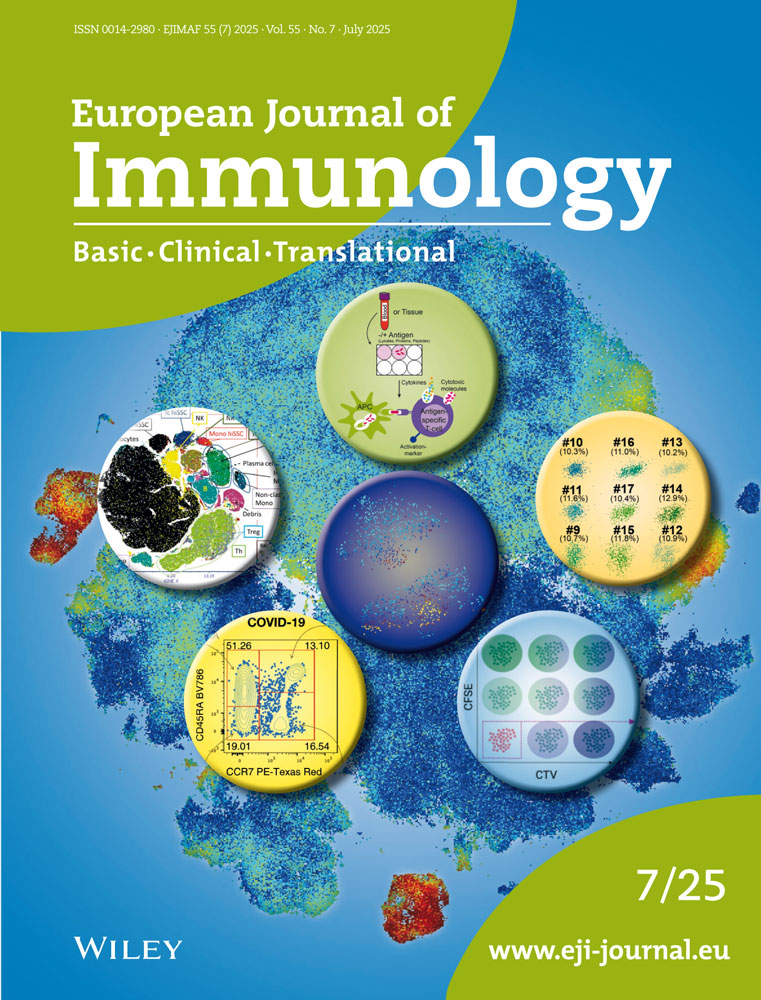Stimulation of murine B cells with anti-Ig antibodies: dominance of a negative signal mediated by the Fc receptor
Abstract
While soluble intact rabbit anti-mouse x chain antibodies (RaMK) fail to stimulate [3H] thymidine incorporation in B cells of young mice, the F(ab')2 fragments thereof are stimulatory. This stimulation can be abrogated by the addition of soluble intact RaMK, pointing at the dominance of a negative signal mediated by intact antibodies, probably via their Fc portion. Blocking the interaction between intact antibody, and the Fc receptor of B cells by staphylococcal protein A renders the intact antibodies also stimulatory. Protein A itself is not mitogenic in this system nor does its addition influence B cell activation induced by rabbit F (ab')2 anti-mouse x chain antibodies. The data indicate that the Ig receptor of murine B cells can serve as a triggering receptor provided the negative signal mediated by cross-linkage involving the B cells' Fc receptor is avoided.




